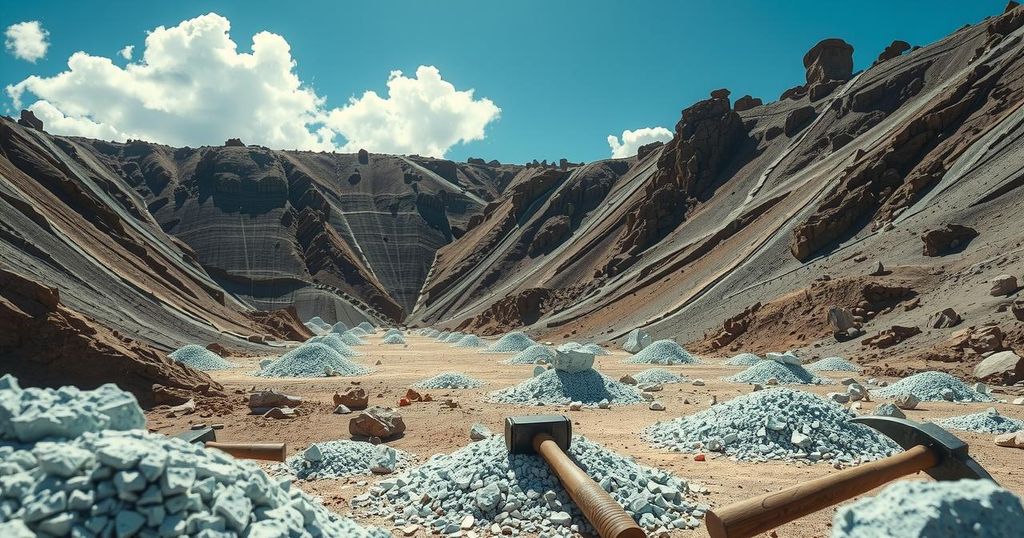Nigeria’s Push for Lithium Mining Faces Serious Challenges

- Nigeria’s lithium mining sector faces early hurdles in development.
- Local miners like Abdulsalam Musa work under risky conditions.
- New processing plants struggle to become fully operational and meet promises.
- Government initiatives aim to regulate informal mining and attract investment.
- Community concerns include environmental pollution and unmet job creation promises.
Nigeria’s mining sector struggles with informal systems
Nigeria’s ambition to harness the lithium boom has not had an easy start. Abdulsalam Musa, a 19-year-old involved in the mining industry in Kaduna, finds himself working long hours under perilous conditions for mere survival. With a daily wage of around 4,000 nairas (approximately $2.50), he chips at rocks for lithium, a crucial component in electric vehicle batteries and energy storage systems. “Sometimes, the pits collapse and if someone is trapped inside, that’s his end,” Musa shares, highlighting the personal risks miners like him face in this dangerous profession.
Processing plants face operational delays and transparency issues
Lithium’s rising global demand presents Nigeria with a chance to reform and regulate its mining sector. In an effort to formalise artisanal mining operations and attract foreign aid, the Nigerian government has initiated reforms to transition these informal operations into cooperatives. However, despite these good intentions, significant challenges lie ahead, particularly related to outdated regulations that make it hard to protect local communities from exploitation. Experts suggest that until these regulations are updated and enforced, the risks associated with the informal mining economy will continue to persist, with serious implications for the health and environment of those communities.
Nigeria aims for domestic lithium processing to boost revenue
The newly built lithium processing plant in Kaduna, a partnership between the state government and the Chinese firm Ming Xin Mineral Separation Nigeria Ltd, was heralded as a significant step forward for Nigeria’s mining potential. Governor Uba Sani declared that the processing plant would create jobs and improve local infrastructure. Yet a year after its opening, many locals report that promises of employment and community benefits have yet to be realised. There are also concerns about environmental pollution from the plant, with residents fearing that waste from the process could contaminate their water sources. The extent to which the plant is utilising properly sourced lithium remains unclear, which raises red flags about its impact on the informal mining sector the government aims to regulate.
Community voices echo disappointment over promised benefits
In light of its focus on local processing, Nigeria’s government has taken steps to shift from merely exporting raw materials to enhancing its mineral supply chains. President Bola Tinubu has mandated that mining licences will only be issued to companies that establish processing facilities within the country. However, as the government strives to refine its lithium domestically, it remains to be seen whether this will yield the anticipated economic benefits and meet the needs of local communities. There are numerous challenges still in play—such as the lack of a clear supply chain, issues with tracers for lithium sources, and ongoing struggles over illegal mining activities remain a core concern for both authorities and local citizens. The Nigerian government’s move to demand a more responsible mining framework may improve its economic standing but only with diligent enforcement of regulations and genuine commitment to community welfare.
As Nigeria embarks on its quest to capitalize on the lithium rush, challenges abound, from informal mining practices to operational setbacks at processing plants. The government’s ambitions hinge on successfully reforming the sector and ensuring that local communities truly benefit from the resources extracted from their land. Without effective implementation of laws and a greater emphasis on transparency, the future for both Nigeria’s lithium aspirations and its local miners may remain uncertain.




